Focus on English
ESL ReferenceSeries
A Guide to English IrregularVerbs for ESL Learners
Using English IrregularVerbs Correctly Every Time
by
ThomasCelentano
Copyright 2012 by ThomasCelentano
Revised: 2020
All rights reserved.
No part of this book may be reproducedor transmitted in any form without the express written permissionof the copyright holder.
For all inquiries, please contact usvia our website: www.foebooks.com:
About the Author
Thomas Celentano has published sevenbooks about English grammar for English students worldwide, hastaught English as a second language for more than 17 years tostudents from all over the world, and has held directorships invarious ESL schools over his career. He is also the author of twonovels, under the pen name, R. Cameron Bryce. He holds universitydegrees in foreign language studies and anthropology from theUniversity of Hawaii, at Manoa.
Dedication
To my students everywhere
Forward
English irregular verbs seem to makeabsolutely no sense. The correct use of English irregular verbs inEnglish communication can sometimes be difficult because of theirunpredictable nature. This text was written as a quick referenceguide, and primer, to help students quickly find and correctproblem areas. The book was written for high-beginner, intermediateand advanced learners.
Introduction
Focus onEnglish Mini Series Books
Making the difficult partsof learning English easy
A Guide to EnglishIrregular Verbs for ESL Learners; Using English Irregular VerbsCorrectly Every Time
This is a book about English irregularverbs. This is for low-intermediate through advanced ESL learnersas well as other English learners wanting to improve their grammar.It is a guide to the correct use of the English irregular verbs, ina wide variety of real-life English sentence contexts. In additionto complete andclear explanations of the correct wayto use irregular verbs, there are many examples of correctusage and self reviews throughout the book.
Each chapter is followed by a practiceand review section, which is designed to help the student reinforcethe lessons from the previous chapter.
The student is encouraged to use thisbook in three ways:
- Asa quickreference resource. The book layout and design make it easyfor the student to quickly search for words or phrases ofinterest.
- As alearn-by-exampletext. Every step of the way there aremany clear examples of usage, making it easy for the student tounderstand how English speakers use irregular verbs in everydaycommunication.
- Asa grammartext.This book was designed to help the student internalizethe subject matter. The student is continuously challenged togenerate, on his or her own, communication based on the lesson athand. Reviews at the end of each chapter help the student toreinforce his or her new knowledge.
A note to students
Students are encouraged to usethis text in groups, when possible. In a group, the student canpractice using English irregular verbs by listening and speaking,as well as reading, which should make learning easier, faster andmore fun.
Quick-Find Menu
Verbs are listed in alphabeticalorder.
Chapter 1: Irregular verbs beginning with the letters A , B, and C
Chapter 1: Irregularverbs beginning with the letters A, B, and C
In this and followingsections you will learn how to correctly use irregular Englishverbs in sentences.
You will have a chance tolearn many things about irregular English verbs in this lesson.First, you will see the three important forms for the verb: baseform (just the verb itself without conjugation), the simple pastform, and the past participle form.
You will then see somecommon definitions for the verb,with many examples ofuse.
After you read thedefinitions, there are examples of how the verb is used indifferent tenses: one example for the simple present, one examplefor the simple past, and one example using the past participle(usually in the present perfect tense).
Irregular verbs beginningwith the letters A, B, and C
 Note: most of thepast participle examples are demonstrated in thepresent perfecttense which is made up of the helperverbhaveorhasplus the irregular verb in thepastparticipleform.
Note: most of thepast participle examples are demonstrated in thepresent perfecttense which is made up of the helperverbhaveorhasplus the irregular verb in thepastparticipleform.
Irregular verbs beginning with A
Arise (base), arose (simple past), arisen (pastparticiple):
Some common meanings: 1. To wake up; 2. Toascend or go up
Examples:
- (SimplePresent) Anthony arises every morning and hascoffee.
- (SimplePast) Anthony arose yesterday and had a bowl ofcereal.
- (PastParticiple) Anthony has arisen and has had abowl of cereal.
Now you try: (SimplePast) My sister ________ this morning and brushed her teeth.
Awake (base), awoke (simple past), awoken (pastparticiple):
Some common meanings: 1. To rouse fromsleep; 2. To become aware of something.
Examples:
- (SimplePresent) Sandra awakes to the sound of her alarmclock every morning at 7 oclock.
- (SimplePast) Sandra awoke very early in the morningyesterday.
- (PastParticiple) Sandra has awoken and has had herbreakfast.
 Note: The verbawaken, which is a regular verb, can be used in theexact same way asawake. In someEnglish-speaking areas, it is much more common to use the wordawaken.Forexample, it would be more common to say: Sandra awakens tothe sound of her alarm clock every morning.
Note: The verbawaken, which is a regular verb, can be used in theexact same way asawake. In someEnglish-speaking areas, it is much more common to use the wordawaken.Forexample, it would be more common to say: Sandra awakens tothe sound of her alarm clock every morning.
Now you try: (PastParticiple, Present Perfect) Jim ___ _________ and has alreadytaken a shower.
Irregular verbs beginning with B
Be(base), was/were (simple past), been (past participle):
Some common meanings: 1. To exist; 2.To occupy a specific place; 3 To take place (and many moremeanings).
Examples:
- (SimplePresent) I am in the city every day except forSaturday and Sunday.
- (SimplePast) I was in Italy last year. We were in France last September.
- (PastParticiple) I have been in Tokyo,Japan.
Now you try: (SimplePresent) She ___ in the building every day except for Sunday.
Beat (base), beat (simple past), beaten (pastparticiple):
Some common meanings: 1. To strikerepeatedly, to pound, to flap; 2. To prevail over another, as in acompetition; 3 To arrive or finish before another (and othermeanings).
Examples:
- (SimplePresent) I beat my friend to work every morning.We leave our homes at the same time, but he drives moreslowly.
- (SimplePast) Our team beat the other team last year. Ihope they dont beat us this year.
- (PastParticiple) We have beaten that team for twoyears now.
Now you try: (SimplePast) Our team _______ their team last year.
Become (base), became (simple past), become (pastparticiple):
Some common meanings: 1. To changeinto, transform into, or grow into over time (and othermeanings)
Examples:
- (SimplePresent) Alice becomes nervous when she walksthrough the city at night.
- (SimplePast) Last year Kyoko became the first femalepolice officer to win the special award for bravery.
- (PastParticiple) Over the past three years, our school basketball teamhas
Next page

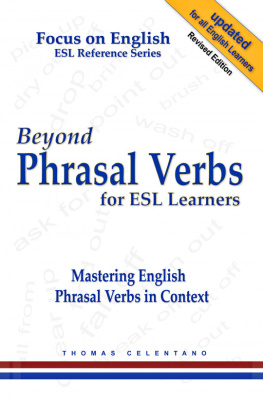




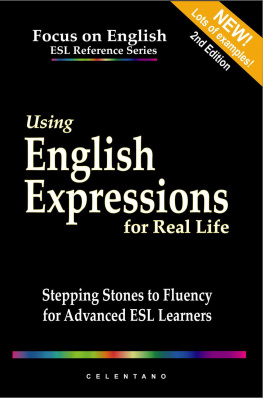


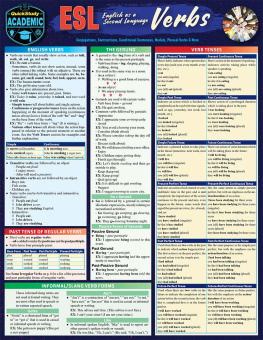
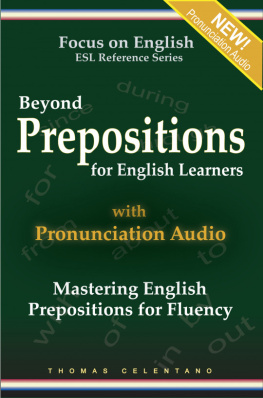
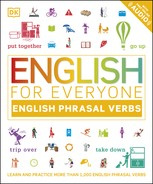
 Note: most of thepast participle examples are demonstrated in thepresent perfecttense which is made up of the helperverbhaveorhasplus the irregular verb in thepastparticipleform.
Note: most of thepast participle examples are demonstrated in thepresent perfecttense which is made up of the helperverbhaveorhasplus the irregular verb in thepastparticipleform.